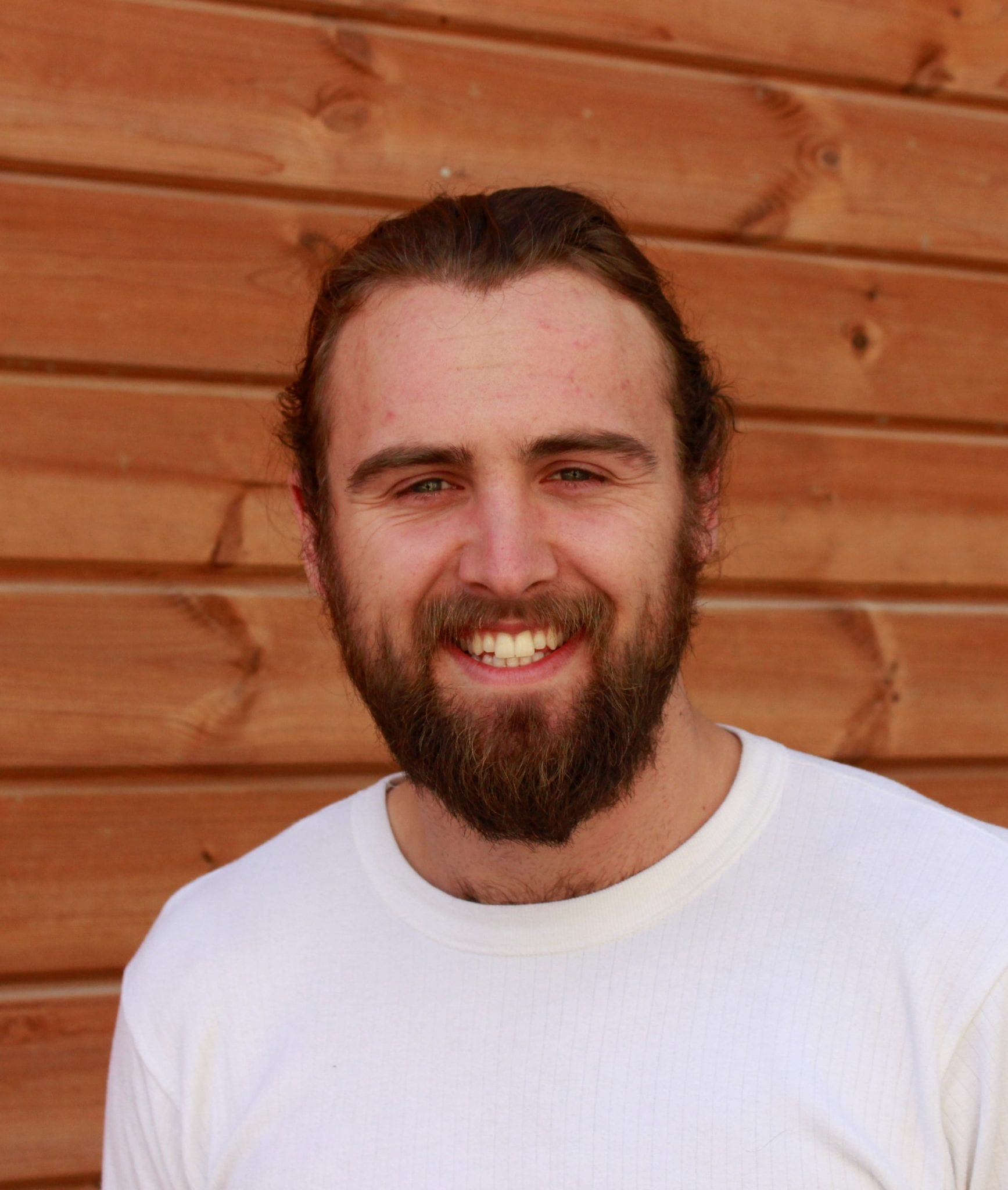
Charlie Guy, Co-Founder of LettUs Grow
What led a group of Bristol University students to decide to set up a food production company while they were in the middle of doing their finals? Read on to find out…
How would you generally introduce yourself and the work you do?
CHAP member LettUs Grow was founded back in 2015 by Jack Farmer, Ben Crowther and myself, all graduates from the University of Bristol. We are all close friends and all passionate about sustainability and agriculture. My background was in renewable energy, Jack was working in startup and business consultancy and Ben came from a mechanical and systems engineering background. We joined forces whilst doing our finals by successfully overfunding a crowdfunding campaign (raising over 150% of the original target) to launch the company.
We founded LettUs Grow to tackle the global problems of food waste and supply chain inefficiency after learning that around 50% of bagged salad bought in the UK ends up being thrown in the bin. Over the past four years, we’ve developed an extremely efficient way of growing plants in completely controlled environments. We control all the inputs to growth with a unique aeroponic system, which has been shown to massively increase the growth rate of plants whilst simultaneously reducing the resource cost.
What does a typical day look like for you and what are you currently working on?
As the Managing Director of LettUs Grow, my role is incredibly varied and changes constantly as the company continues to scale. We’re in the midst of a funding round right now, so at the moment I’m travelling up and down the country talking to investors. My job is made easier as the benefits of our systems and the quality of our team speak for themselves. Investors don’t need too much convincing!
What do you find most challenging about your job/field?
There is the challenge of public perception – making sure the public is aware this is a fundamentally sustainable technology and a safe way to grow that can provide more nutritious, sustainable and fresher produce to people. There’s industry-wide recognition that food safety should be front and centre of the mindset, but because it’s such a new industry people can be a little wary.
Have you seen a difference in your field following CHAP’s creation?
CHAP’s support for Controlled Environment Agriculture (CEA) companies, such as Liberty Produce and ourselves, is really helping the industry to grow. Support from government organisations and Innovate UK encourages deeper innovation and forges R&D partnerships that bring academia, industry and funders together.
What led you to get involved in vertical farming?
We came together initially to tackle the problem of food waste and inefficiencies in the food supply chains using technology. Around 50% of bagged salad we buy in the UK ends up being thrown in the bin. Part of it is systematic and to do with portion sizes and part of it is consumer behaviour and not valuing the product – but the main thing that shocked us and got us into the industry is how much is wasted in the supply chain. We wanted to change that. We quickly realised the technology we were developing could have even bigger implications: saving resources, reducing pesticide use and providing food security in an unstable climate. The whole project has snowballed from there.
What do you think will be the biggest area of focus/biggest change five years from now?
According to the most recent United Nations estimates, the current world population is 7.7 billion. By 2025, the global population is expected to tip 8 billion people and 9.6 billion by 2050. In the past, farmers increased the size of their yields along with the growing population. However, the measures that they have used to achieve this growth have reached their limits. Fertile agricultural land is rapidly decreasing, insect biomass has dropped 40% over the past 50 years and natural resources are running out – something has got to give. Looking forward, we need new approaches focused on increasing efficiency and environmental protection and stewardship alongside productivity.
Our vision for LettUs Grow is to be a leading supplier to the rapidly-growing, global indoor farming industry. Our technology has benefits in both completely controlled environment vertical farms and in single-plane greenhouses. We are looking to accelerate deployment of products into this well-established market to increase productivity for farmers around the world. We aim to play an important role in making climate-resilient, resource-efficient growing accessible to a wider audience, while helping to educate people about the value of food and how it is produced. Our technology will be key in taking the pressure off traditional agricultural methods, so they can nurture soils and biodiversity effectively.
What advice would you give to recent new entrants to the vertical farming sector?
The most important thing is that any system that’s built is market-led – the business case has to be there for it. You need to grow crops that make a profit for the farmer. We’ve had the benefit of coming to this industry and learning from some of the companies that haven’t been successful. We only work on projects that are going to deliver a return to the grower.
If you had to stop working in this field, what would you choose to do instead?
My background is actually in renewable energy rather than agriculture, at the moment we’re working on some exciting integrations between indoor farms and renewable energy technologies to improve the overall efficiency of production for total resource and energy efficiency. This collaborative systems approach is something that sets LettUs Grow apart.
If, for some reason, I had to change fields, I imagine that I would aim to be working on other resource-efficient methods of production that fit into Circular Economy principles, potentially integrating renewable energy systems with these where possible. I can’t picture myself working outside of the sustainability sector. There is too much at stake.









